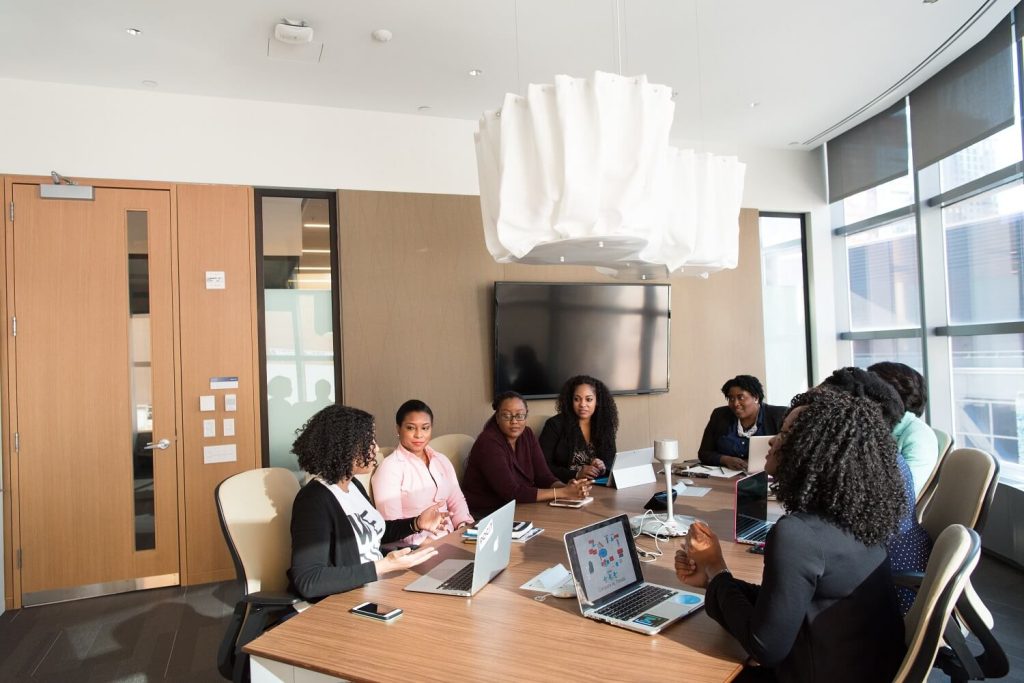Disciplinary hearings are a vital part of maintaining workplace discipline in South Africa, but they’re a process many employers trip over, often with steep consequences. In 2024/2025, the Commission for Conciliation, Mediation and Arbitration (CCMA) dealt with over 226,426 disputes, many sparked by avoidable errors in disciplinary actions.
A single oversight—rushing through, skimping on records, or sidelining fairness—can escalate into CCMA referrals, Labour Court battles, or hefty payouts. These are just a few of the mistakes employers make in disciplinary hearings, and they can be costly if not handled correctly.
Yet, these risks can be sidestepped with the right approach.
Drawing from local labour law like the Labour Relations Act (LRA) of 1995, expert insights, and South African case studies, this article unpacks ten frequent mistakes employers make in disciplinary hearings. Each comes with detailed explanations and practical, step-by-step fixes to keep you compliant and your workplace steady.
Whether you’re running a small business in Durban or managing HR in Pretoria, here’s how to navigate this process with confidence.

What is a Disciplinary Hearing?
In South Africa, a disciplinary hearing is a formal meeting where an employer addresses an employee’s alleged misconduct or poor performance. Rooted in the LRA and guided by Schedule 8 of the Code of Good Practice, it’s about fairness—substantively (is the rule fair and broken?) and procedural (was the process just?).
It’s not an informal chat or a legal showdown; it’s a structured chance to present evidence, hear the employee’s side, and decide on action—be it a warning, suspension, or dismissal. Handled well, it reinforces trust and legality; mishandled, it’s a fast track to disputes.
Mistake #1: Failing to Follow Due Process
South African labour law demands a fair process, yet many employers skip critical steps like issuing a written notice or giving employees a chance to prepare. The LRA’s Schedule 8 insists on proper notification and an opportunity to respond, and the CCMA frequently overturns dismissals when these are ignored.
Legal Leaders published a case summary from December 2021 about a Durban-based real estate company that was ordered to pay R2.6 million in compensation to a manager who was dismissed without a hearing. The company failed to provide her with an opportunity to respond to complaints from her staff. The CCMA found the dismissal to be procedurally and substantively unfair. This case is a perfect illustration of your statement’s core message, but with a much higher compensation amount.
How to Avoid It:
- Follow Schedule 8—provide a written notice with charges, evidence, and hearing date.
- Allow at least 48 hours for preparation, a widely accepted standard.
- Permit a shop steward or colleague to support the employee, as the LRA allows.
Expert Insight: “Procedural fairness isn’t optional—it’s the backbone of a defensible hearing,” says Johannesburg labour lawyer Thandi Molefe.
Mistake #2: Poor Documentation
Evidence wins cases, but too many employers enter hearings with patchy or no records. The CCMA hinges on proof—without it, your version of events holds little weight.
Inconsistent or absent documentation can make it difficult for employers to defend against claims of wrongful termination, discrimination, or other employment-related disputes
How to Avoid It:
- Log every incident, witness statement, and warning with dates and signatures.
- Use a standard disciplinary form for uniformity.
- Store records securely, respecting the Protection of Personal Information Act (POPIA).

Mistake #3: Letting Bias or Emotion Take Over
Hearings should hinge on facts, not feelings, yet bias often creeps in. A study titled “Leadership Behaviours of Line Managers: Narratives of Followers at a South African Public Department” found that “dishonesty, nepotism, inconsistent behaviour and unfairness were identified by research participants as unethical leadership behaviours that are also common among managers at the case South African public department.
How to Avoid It:
- Base decisions on hard evidence—attendance logs, not opinions.
- Appoint an impartial chair if the manager’s involved in the issue.
- Train staff on spotting and curbing bias.
Mistake #4: Inconsistent Application of Rules
Fairness demands consistency, but uneven discipline—lighter penalties for some, harsher for others—spells trouble under the Employment Equity Act.
While an older Constitutional Court case, this landmark ruling dealt with a dismissal for racist remarks. The case involved the CCMA, Labour Court, and Labour Appeal Court and highlights how serious such matters are taken and the potential for a finding of unfair dismissal if procedures or consistent application of rules are flawed.
How to Avoid It:
- Establish a clear disciplinary code (e.g., first offense = verbal warning).
- Review past cases to ensure uniformity across teams.
- Train managers to apply rules evenly, no exceptions.
Mistake #5: Neglecting Post-Hearing Follow-Up
A hearing’s end isn’t the finish line—failing to communicate outcomes or check progress leaves gaps. A 2021 survey found 30% of South African employers skip follow-up, leading to confusion or repeat issues.
How to Avoid It:
- Deliver a written outcome—decision, reasons, sanctions—within 48 hours.
- Set review dates to monitor compliance or improvement.
- Offer support like training if the issue’s performance-related.

Mistake #6: Inadequate Preparation
Walking into a hearing unprepared is a recipe for failure. You need evidence and a clear plan, or the CCMA will see through the gaps.
How to Avoid It:
- Gather all proof—CCTV footage, emails, statements—well in advance.
- Brief your chair and witnesses on key points.
- Anticipate the employee’s likely defenses and prepare responses.
Mistake #7: Ignoring Employee Rights
The LRA guarantees rights like representation and appeal, yet some employers brush them aside. This case, cited in the Labour Law Management Consulting article, involved a biased chairperson, which is similar in principle to denying representation in that it undermines the fairness of the process. The employer was ordered to pay R58,000 in compensation. This illustrates the financial consequence of procedural unfairness. Rights aren’t optional; they’re baked into South African labour law.
How to Avoid It:
- Understand the LRA—employees can bring a representative.
- Include rights in the hearing notice (e.g., “You may have a shop steward present”).
- Offer an appeal process if requested, per best practice.
Mistake #8: Overcomplicating the Process
Hearings should be straightforward, but some employers turn them into marathons of formality.
How to Avoid It:
- Stick to the core issue—don’t stray into unrelated matters.
- Explain terms clearly (e.g., “gross misconduct” = theft or violence).
- Set a tight agenda and follow it.

Mistake #9: Failing to Train Hearing Chairs
An untrained chair can derail the entire process with missteps or confusion. A study found South African employers don’t train staff for this role.
How to Avoid It:
- Train chairs on the LRA, company rules, and neutrality.
- Run mock hearings to build confidence.
- Update training annually to stay current.
Mistake #10: Not Reviewing Outcomes for Improvement
Failing to learn from hearings means repeating the same blunders.
How to Avoid It:
- Debrief after each hearing—what worked, what didn’t?
- Tweak policies based on insights gained.
- Track trends to catch recurring issues early.
Why Getting It Right Matters
Disciplinary hearings are a litmus test for fairness in South African workplaces. Get them wrong, and you’re staring down CCMA awards, staff turnover, and a damaged reputation.
Get them right, and you foster trust while staying on the right side of the LRA. Businesses with strong processes see fewer disputes, per an analysis. It’s about diligence—document thoroughly, act fairly, and follow through.
Final Takeaway: “A hearing is a process, not a showdown. Handle it with precision,” says Thandi Molefe.

FAQ: Disciplinary Hearings in South Africa Explained
How long should a disciplinary hearing take?
Usually 30-60 minutes, depending on the case. The Code of Good Practice pushes for efficiency—cover the allegations, evidence, and response without detours. Overextending it can signal unfairness or inefficiency, frustrating all involved.
Can an employee refuse to attend?
Yes, but if you’ve given proper notice (e.g., 48 hours, in writing), you can proceed. The LRA requires proof they had a fair shot to participate. Record their refusal and any reasons—it’s your shield if the CCMA asks.
What if the employee brings a lawyer?
In private hearings, lawyers aren’t a given unless your policy or a union agreement allows it. The LRA ensures a colleague or shop steward, not legal counsel. Decline politely unless obligated, and document the decision.
How soon should I issue a decision?
Within 24-48 hours, ideally in writing. The CCMA values promptness—delays can spark disputes over uncertainty. Detail the outcome, reasoning, and sanctions clearly to close the loop.
Are disciplinary hearings confidential?
Yes, under POPIA, employee data must stay private. Restrict attendance to essentials (chair, HR, witnesses) and secure records. Leaks can lead to fines or claims, so treat it as sensitive HR business.





No comment